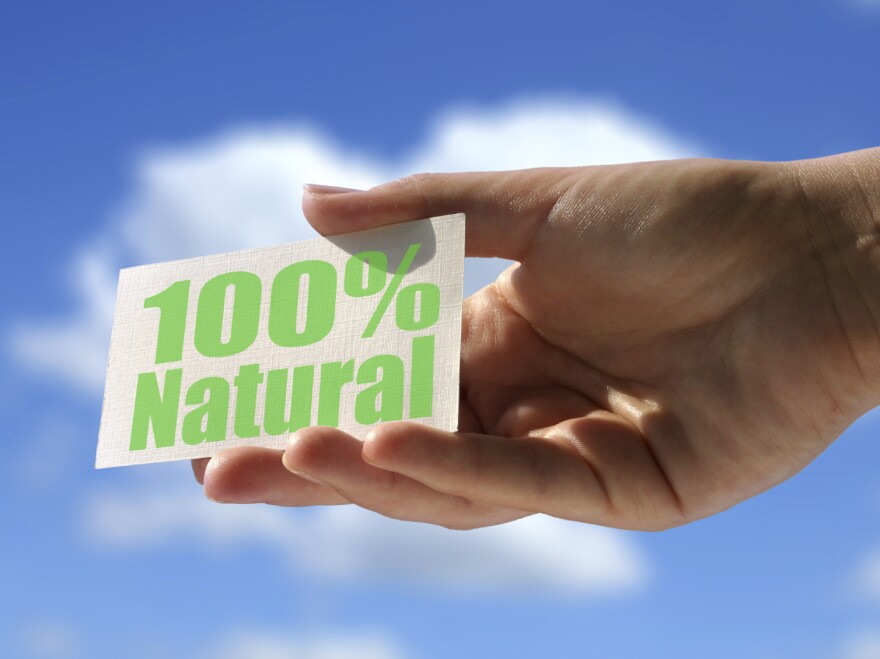Some people have had it with "natural" food.
For fifteen years, Urvashi Rangan, director of consumer safety and sustainability for Consumer Reports, has been pointing out that "natural" is just about the most misleading label that you'll ever see on a food package. Yet consumers still look for that word, food companies still love to use it and the Food and Drug Administration can't or won't define it.
So Rangan now says it's time to kill the "natural" label. Consumer Reports is about to submit formal petitions to the FDA and the U.S. Department of Agriculture, asking them to ban the word from food packages, so that consumers won't be hornswoggled by empty promises.
It's the latest turn in a debate that's gone on for decades, in part because defining naturalness seems to be just as hard as defining beauty.
According to a report from the Center for Science in the Public Interest, the FDA told a food manufacturer in 1940 that canned, heat-treated grapefruit juice couldn't be called natural. "This term should be reserved for fresh juice or juice which has been kept without intervention of any process of heat treatment," the agency wrote.
But times and technology change. These days, the FDA only objects to calling a food "natural" if it contains artificial flavor, color or other synthetic additives. Otherwise, there are few restrictions.
Farmers can grow crops using pesticides and genetically modified crops, often called GMOs. They can feed antibiotics to animals or keep egg-laying chickens in cages. Food processors can add sugar (an "all-natural" sweetener, after all) or corn starch or anything else derived from plant or animal life to their products. It's all "natural."
This is galling for Rangan, because Consumer Reports been campaigning against several of these practices, including the use of antibiotics and GMOs. Most consumers, she says, believe — mistakenly — that food labeled "natural" is produced without these practices. Surveys show that most consumers think that the label is equivalent to "organic." Organic rules do ban the use of antibiotics, GMOs and almost all synthetic pesticides.
In theory, the FDA could define "natural." In reality, Rangan says, there's little chance that will happen, at least not quickly. It took many years for the USDA to come up with a working standard for organic food, and defining "natural" would be just as complicated. Better, she says, just to ban the word.
Others have attacked the problem through the courts. More than 200 lawsuits have been filed against the use of "natural," arguing that it can't apply to food containing GMOs or hydrogenated oils. In some cases, companies responded by erasing the offending word from the label.
Rangan's quest to ban the word entirely, however, faces tough legal hurdles.
"I'd be very surprised if the FDA has any interest in acting on this," says David Ter Molen, an attorney with Freeborn & Peters in Chicago who's also editor of a "Food Identity Blog." "This is not a health or safety issue for them" and not high on the agency's list of priorities.
So, for now, whether something is natural remains a matter of opinion.
Copyright 2021 NPR. To see more, visit https://www.npr.org. 9(MDAxODg3MTg0MDEyMTg2NTY3OTI5YTI3ZA004))




